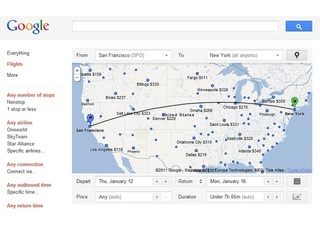The FDA outlines draft guidance on AI for medical devices
The agency also published draft guidance on the use of AI in drug development
Read more...
The experience of traveling has been forever changed by the advent of mobile technology. From smartphones and tablets to netbooks and Macbook Airs. These devices have changes how we rank what we are bringing to assure that we have them, their chargers, their cases and connectivity for as much of the journey as possible.
I know that when I travel I keep all Internet devices in my carry-on because I would rather risk loosing my entire wardrobe than my laptop and its charger. And it appears that I am nowhere near alone in this tech dependance when traveling. Nearly half of all travelers have reported feelings of anxiety without their mobile devices, according to a study conducted by Intel that came out today.
Whether it is a weekend getaway or a two week journey, I don't think I could even go sans computer. In fact, 64% of survey respondents admitted to sacrificing their hair dryers or styling tools, toiletries, sunscreen, workout clothes and even shoes in order to make space in their luggage for their devices.

The “Intel Survey: Tech Norms for Travelers,” exposed the dependance we have on our devices, laptops and tablets -- revealing Americans feel an emotional bond with their mobile devices to the point of feeling calmer and less stressed when they have access to this technology while vacationing.
An overwhelming 87% of young adults (18-29 years old) feel better (happier even) when traveling with their devices. And when asked how stressful the thought of loosing their mobile devices while traveling would be, the technology boxes ranked higher than the idea of loosing a wedding ring.
When traveling, especially over long distances, one of the biggest challenges with technology is keeping it juiced up. Thankfully many airports and even seats on airplanes have added outlets to aid in the tech-dependance that has sprung up (precisely why I fly Virgin whenever possible, their aircrafts have at least one outlet for every three seats and outlets all over their terminals).
Roughly 46% of respondents and 63% of young travelers admitted to compromising their personal comfort and hygiene in pursuit of a power source to keep their device charged. This included going out of their way to find an available power outlet, choosing a restaurant or coffee house based on outlet availability, searching public bathrooms or compromising comfort and hygiene to sit on the floor near an outlet. We've all seen the kids scattered on questionable airport floors to get a little more power in their phones (and I may or may not have been one until I became more diligent on powering up to 100% before flying).
“With summer travel now in full swing, we find that many people have a few common must-have items on their trip packing lists – Ultrabook, tablet and laptop. The bond between travelers and their tech devices has strengthened greatly over the past few years with the explosion of instant information, entertainment and services conveniently available on the Web,” said Mike Fard, Intel Ambassador, in the survey results. “Gone are the days of travel as simple escape of ‘daily life’ as more people seek to enhance and share vacation experiences in real-time and use technology to truly make travel more fun and more memorable.”
Here are some more findings from the study:
Tech security
Despite our tech addictions, 52% of all travelers are annoyed by the physical burdens traveling with technology brings, including heavy mobile devices, power cords and battery packs, and pulling their device out of their bag to go through the airline security check.
Forty-six percent of travelers say their biggest pet peeves about traveling with technology relates to device security, including worrying the device may be lost or stolen and someone glancing at their screen. This concern rises to 62% among young adult travelers.
Despite this reported paranoia, around one-quarter of travelers (26 percent) fail to take basic security precautions and admit to security risks including entering credit card details in public, using unsecured Wi-Fi networks, viewing sensitive documents on their device and even leaving their device unattended.
Mile-high manners
Half of American travelers (49%) admit getting annoyed when the behaviors of others compromise their traveling comfort and security, including screen glancing and viewing inappropriate content, with more than 29 percent of all travelers claiming they’ve caught fellow travelers peeping at their screens.
Despite “peeping-techs” topping the list of travel peeves, more than half (51%) of young adults admit to peeping at someone else’s screen while 33% of travelers admitted being a “peeping-tech.”
Thirty percent of all travelers do not think they need to power off their devices when they fly. Men readily admit to flaunting aviation rules in pursuit of connectivity and ignoring requests to power down their devices, with more than 10% admitting they have ignored instructions to power off their mobile computing device when flying (13%) and personally have been asked by a flight attendant to power off their mobile computing device because they ignored the initial directions (11%).
Thirteen percent of young travelers admit to “hogging” an available power source.
(Image Sources: Intel and Sheknows)
The agency also published draft guidance on the use of AI in drug development
Read more...The biggest focus areas for AI investing are healthcare and biotech
Read more...It will complete and submit forms, and integrate with state benefit systems
Read more...


